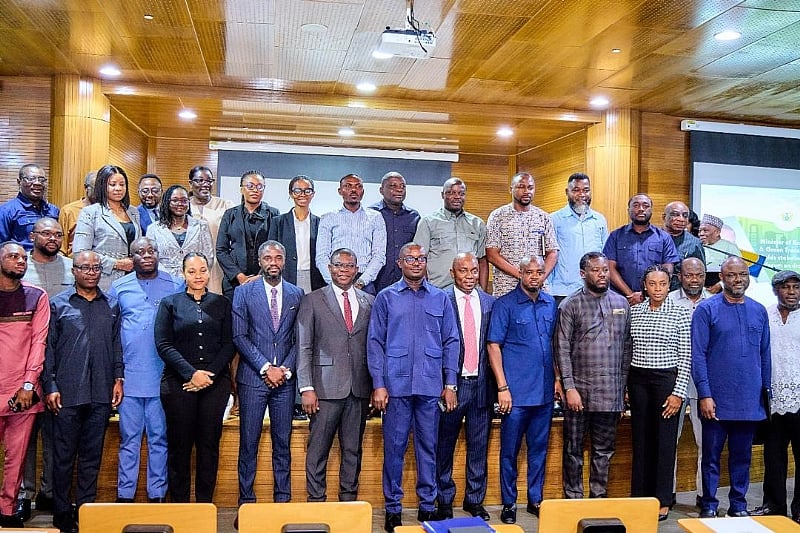Paragraph 1: The Need for Modernization
The Ghanaian petroleum downstream sector is undergoing a significant transformation, driven by evolving market dynamics, technological advancements, and global energy trends. Recognizing the limitations of the existing National Petroleum Authority (NPA) Act of 2005 (Act 691), the NPA, under the auspices of the Ministry of Energy and Green Transition, initiated a comprehensive review process. The objective was to develop a new legislative framework that effectively addresses the current challenges and anticipates future needs of the industry. The existing Act, while relevant in its time, no longer adequately captures the complexities of the rapidly evolving downstream landscape. Therefore, a modernized legal framework became necessary to ensure the sector’s continued growth, stability, and alignment with national energy goals.
Paragraph 2: Collaborative Stakeholder Engagement
Central to the review process was the active engagement of industry stakeholders. The NPA hosted a stakeholder forum on August 25, 2024, providing a platform for open dialogue and collaborative input. Participants included representatives from various segments of the downstream sector, alongside officials from the Ministry of Energy and Green Transition. This participatory approach underscored the government’s commitment to transparency and inclusivity in shaping the future of the industry. The forum facilitated valuable discussions, enabling stakeholders to share their expertise, perspectives, and recommendations for the draft NPA bill. This collaborative engagement ensured that the revised legislation would reflect the collective wisdom of the industry and address the practical needs of its diverse players.
Paragraph 3: Addressing Evolving Industry Demands
The Acting Chief Executive of the NPA, Godwin Kudzo Tameklo, Esq., emphasized the significance of updating the legislative framework. He noted that the 20-year-old Act has become outdated in the context of the dynamic downstream sector. The fast-paced nature of the industry necessitates a legal framework that can adapt to emerging challenges, technological advancements, and changing market conditions. Mr. Tameklo assured stakeholders that their input would be carefully considered in finalizing the draft bill, reflecting the NPA’s commitment to incorporating industry expertise into the new legislation. He emphasized the importance of leveraging the expertise within the Ghanaian downstream sector to create a robust and future-proof legal framework.
Paragraph 4: Aligning with National Energy Goals
The Honorable John Jinapor, Minister of Energy and Green Transition, highlighted the importance of the review process in light of global trends towards energy sustainability and security. The revised legislation is expected to contribute to Ghana’s efforts in achieving a more sustainable and secure energy future. The Minister stressed the need for a competitive and sustainable downstream sector, aligning with national energy priorities. The updated NPA bill is intended to provide both a robust regulatory framework and strategic policy guidance, supporting the long-term development and stability of the petroleum downstream sector. It aims to move beyond mere legal enforcement to encompass broader policy considerations and strategic planning.
Paragraph 5: A Comprehensive and Forward-Looking Approach
The draft NPA bill signifies a shift from a purely regulatory approach to a more holistic framework. The new legislation will incorporate elements of policy and strategy, offering guidance for the long-term development of the downstream sector. This comprehensive approach ensures that the legal framework not only enforces regulations but also contributes to the strategic direction of the industry. The bill is designed to enable the NPA to proactively address emerging challenges, anticipate future trends, and promote sustainable growth within the petroleum downstream sector. This forward-looking approach will enhance the industry’s resilience and competitiveness in the face of evolving global energy dynamics.
Paragraph 6: Securing the Future of Ghana’s Petroleum Downstream
The stakeholder forum provided a crucial opportunity for in-depth discussions and feedback on the draft NPA bill. Participants offered substantive proposals aimed at strengthening the legislation and ensuring its alignment with the long-term interests of the petroleum downstream sector. The comprehensive review, stakeholder engagement, and forward-looking approach adopted in developing the new bill demonstrate Ghana’s commitment to fostering a robust, sustainable, and secure petroleum downstream sector. The revised legislation is expected to provide a strong foundation for the industry’s continued growth, contributing to national energy security and economic development. By incorporating the insights and expertise of industry stakeholders, the final legislation aims to create a dynamic and resilient downstream sector capable of navigating future challenges and opportunities.


